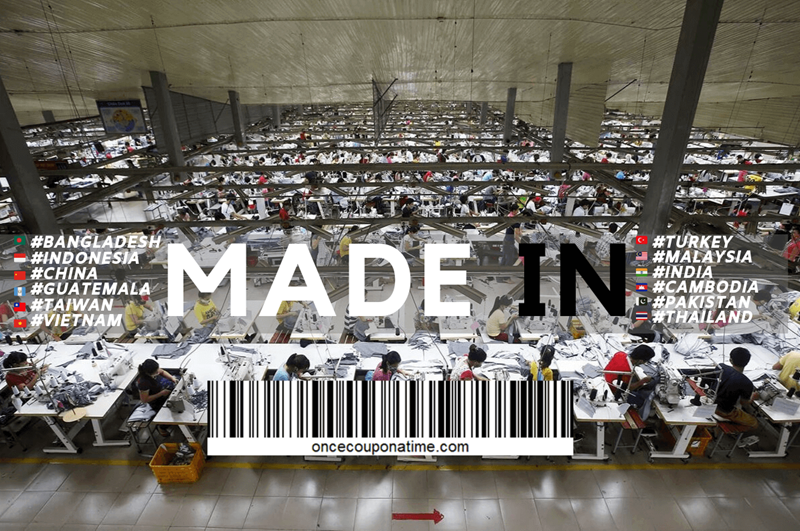
In recent years, there has been a boost in the activities aiming to raise awareness about our modern consumption patterns and mass production practices. The increasing criticism towards the manufacturing practices in the fashion industry is no exception. Just like the concept of “fast food” has changed our dietary habits, the levels of mass production in the fashion industry are such that we now have a concept called “fast fashion”, which has completely changed our consumption habits. The impacts of the malpractices in the fashion industry manifest themselves in the unethical working conditions, underpaid workers, huge amounts of unsold clothes ending up in landfills without being recycled, and pollution on a global level. There is no doubt that consumerism is both the reason and these outcome of these malpractices and it has now reached unprecedented levels.
What Consumption in the Fashion Industry Leads to
In this day and age, it is obvious that mass production and overconsumption leads to significant problems. Unfortunately, consumption of clothes is at the top of the long “list of problems”. We keep consuming without ever thinking about the journey that the clothes we buy go through until they end up in stores. We only see the product and ignore all the manufacturing processes, waste and user responsibility it brings about. One of the most important reasons behind the frenzy called consumerism is that we separate the product from the production process and start seeing it as “something that has come into existence out of nowhere”. When we reach this level of ignorance, we then start thinking that we have no responsibility whatsoever when it comes to buying or maintaining a clothing item.
This particular consumer behavior has surfaced only in the last 50 years and it lays the foundation for many problems that we encounter today. Nowadays, we own at least four or five times more clothes than our parents did when they were our age. In the old days, the fashion industry had only four seasons. Now, however, it has as many seasons as there are weeks and even days in a single year. We have different sets of products dedicated to different activities and chapters in our lives. Unfortunately, the incentive to consume more knows no boundaries. The “influencers” that have popped in the recent years are further encouraging young people to consume more by constantly promoting new products on YouTube, Facebook and Instagram. We used to be able to make a clear distinction between what is real and what is being advertised to us. In this day and age, advertisements and consumption have become integral parts of our lives every minute of the day.
The overconsumption of clothing items leads to one of the most critical problems of our age: waste generation. Waste generation is a massive problem regardless of where waste is coming from. We presume that the products we consume are there as long as we consume them and that once we are done with them, they disappear off the face of the earth. The bad news is that our planet has no superpowers to do that. From the single sock you throw away to the coat you wore for only two years; every single item ends up in the landfill. The chemical dye used to color these items leak into soil and contaminate everything.
In addition to these problems, there is also the unethical working conditions in the fashion industry. We all know about the women, men and children who work under unethical and unhealthy conditions, most of them being underpaid. Unfortunately, though, we fail to picture the scene whenever we buy a cheap t-shirt that says “Made in Bangladesh” on the label. Perhaps we are afraid of realizing how big an impact those simple decisions – as simple as buying a cheap t-shirt – have on other people and on our planet in general. We are afraid of accepting the truth, but sooner or later, we will have to face our fears and accept our responsibilities.
Action Against Manufacturing-Consumption Practices: "Fashion Revolution"
Recently, there has been a myriad of initiatives to give an end to this massive manufacturing and consumption cycle, waste and “modern slavery”. “Fashion Revolution” is one of those initiatives that has had a global impact. What fueled these sorts of initiatives was the collapse of an eight-story building in Bangladesh in 2013. The Rana Plaza hosted five textile factories, and the collapse caused the death of 1,138 workers in the building, with an additional 2,500 injured. As with many textile factories and production facilities in under-developed and developing countries, almost half of the workers in this building were young women.
Right after this terrible incident, Fashion Revolution movement started and quickly spread all around the world. This movement was encouraging people to ask questions to fashion giants about where their products are produced, who are making them and under what conditions they are working to make those clothes. Still continuing to encourage people to make a difference and raise awareness, the movement paved the way for somethings to change in the fashion industry. The brands that used to be unwilling to disclose anything about their production processes have started to invest more in transparency. However, the abuse is still ongoing in the fashion industry. According to data shared by Fashion Revolution, approximately 75 million workers are working to meet the needs of the global textile industry and 80% of these workers are young women aged 18-35. If you want to take an action against these malpractices in the fashion industry led by big brands, you can read the Manifesto on the official website of Fashion Revolution to get informed about the subject. You can also get in touch with your country representatives to become a part of this global movement.
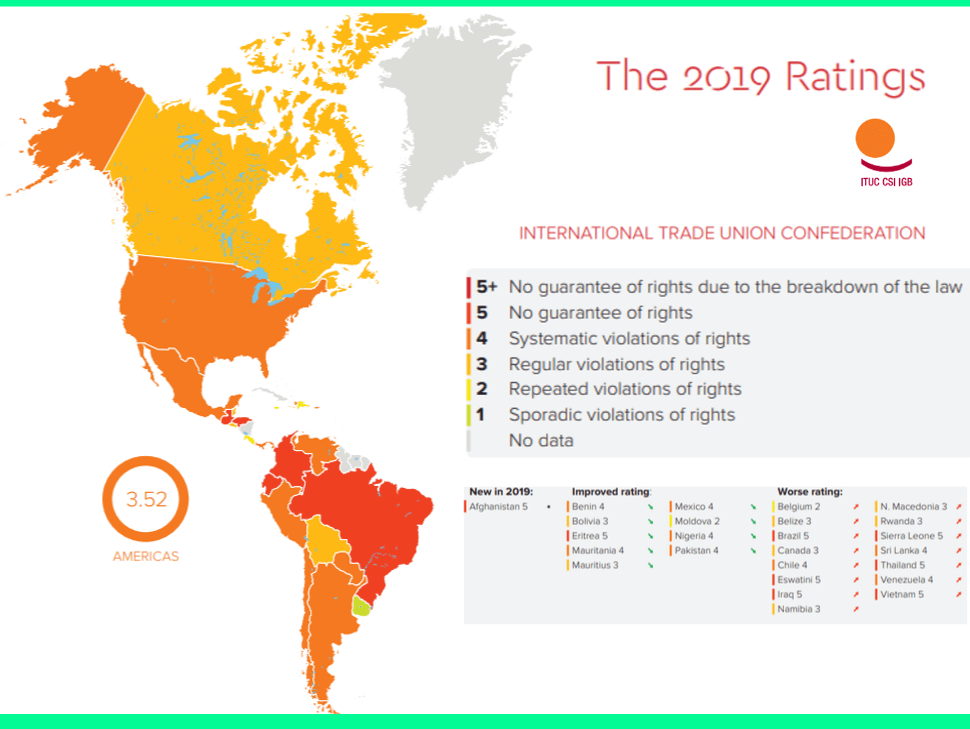
According to the 2019 Global Rights Index that was published by ITUC (International Trade Union Confederation), the countries where violation of workers’ rights are observed the most include Bangladesh, Egypt, Guatemala, the Philippines, Algeria, Kazakhstan, Saudi Arabia, and unfortunately, the United States.
What Can You Do as An Individual?
It is, of course, impossible to change the approach of big brands in a single day. What is important is to change our own approach. One of the first and most efficient steps you can take is to stop shopping from “fast fashion” brands that impose daily trends and offer incredibly cheap products. You can choose to shop from local and ethical brands. You might be thinking that it would cost you a lot of money to do that, however, you can even save money by buying three high-quality shirts instead of buying ten low-quality shirts.
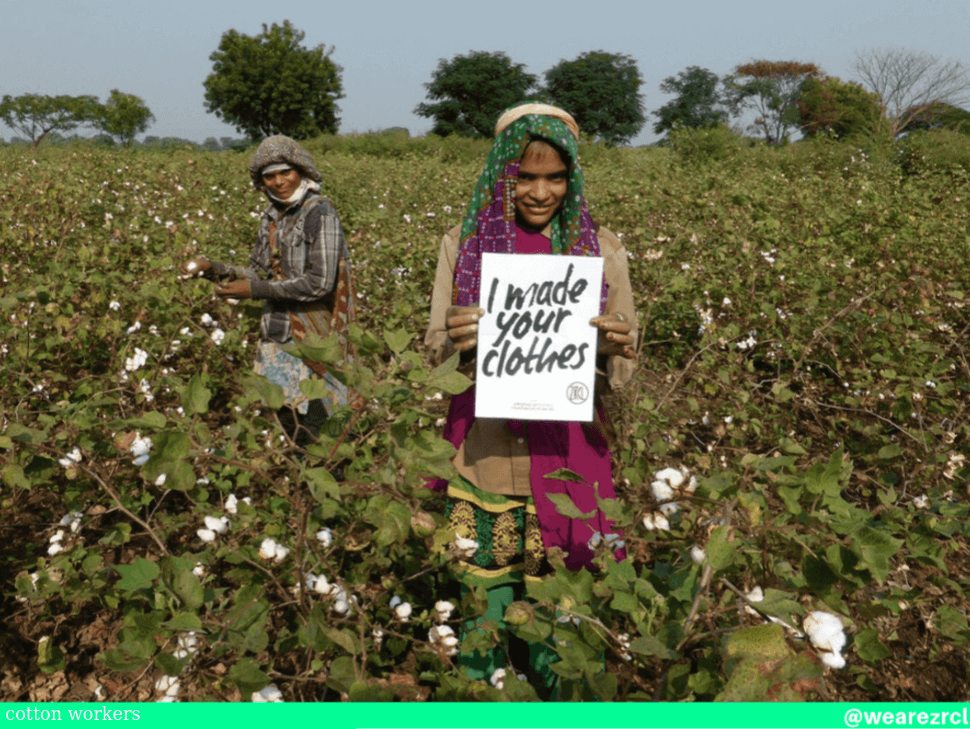
You can try to repurpose the textile waste instead of throwing them in the garbage. Unfortunately, it is not an option to recycle most used clothes, because the technology to do so is not available everywhere. However, cutting the clothes into small pieces can help provide a material that can be used in isolation. You can also repurpose and “upcycle” the clothes you no longer wear by trying out various DIY projects. If you can’t come up with anything creative, you can simply use them to dust your house.
If you want to make a big impact, the best thing you can do is to minimize your shopping from “fast fashion brands” because it is the only way to reduce the demand for them. The next you can do is to send them e-mails to ask questions about their activities. Don’t forget that brands supply what is demanded. If what you are demanding is ethical, the supply will also be ethical.

























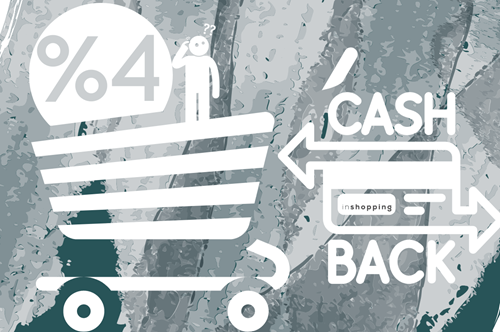

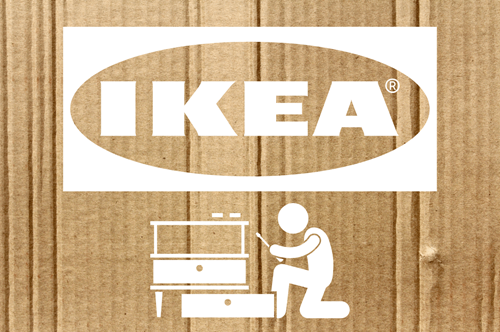



REVİEWS - 0 reviews